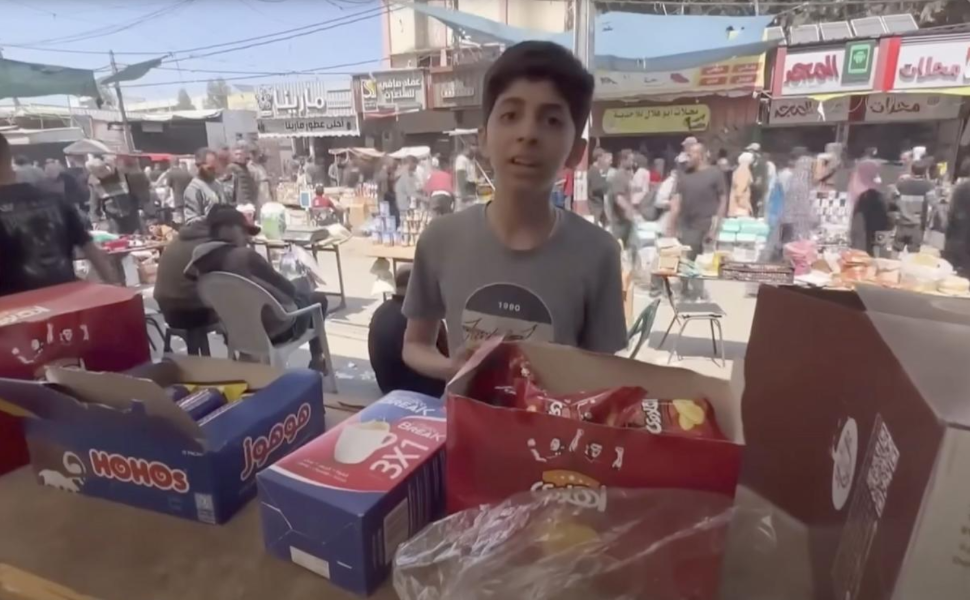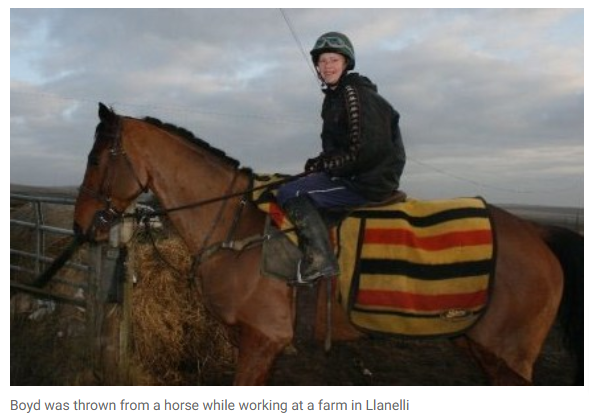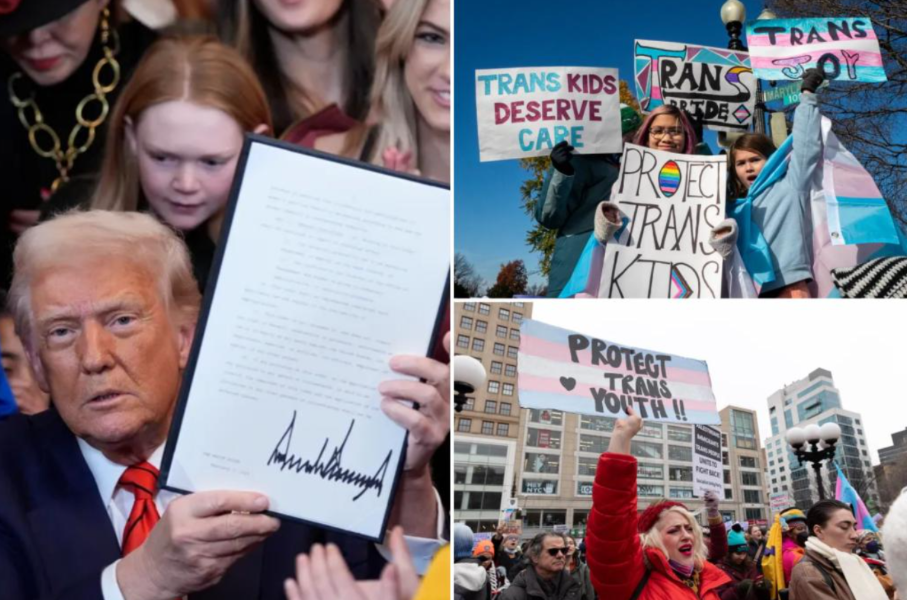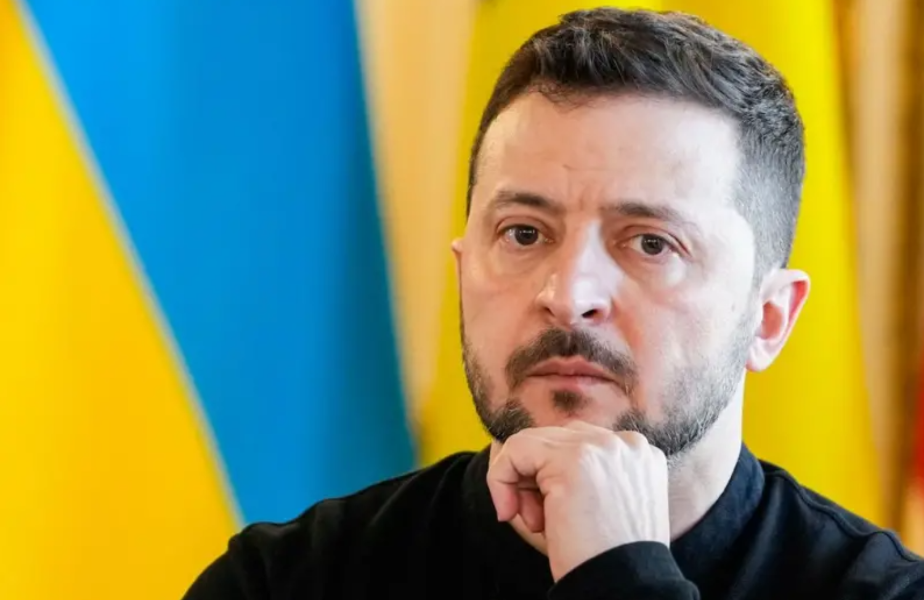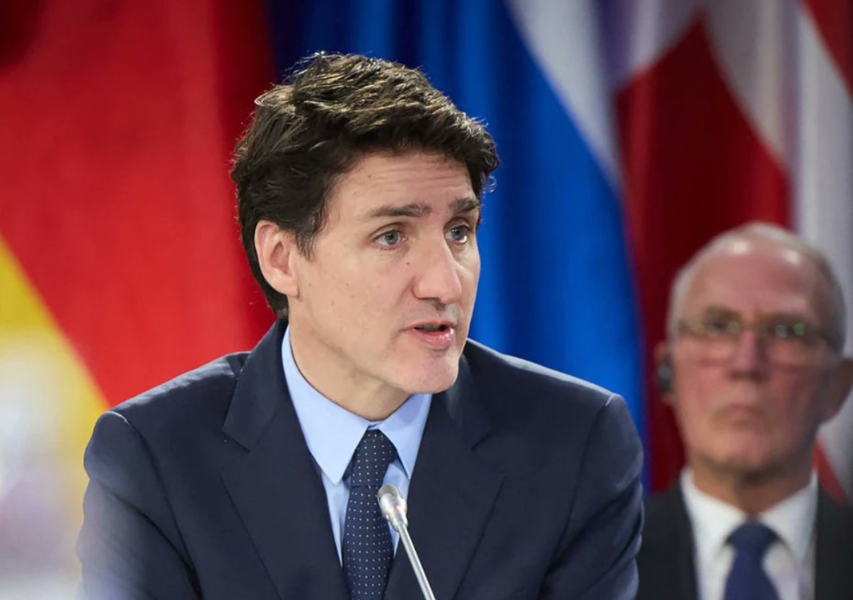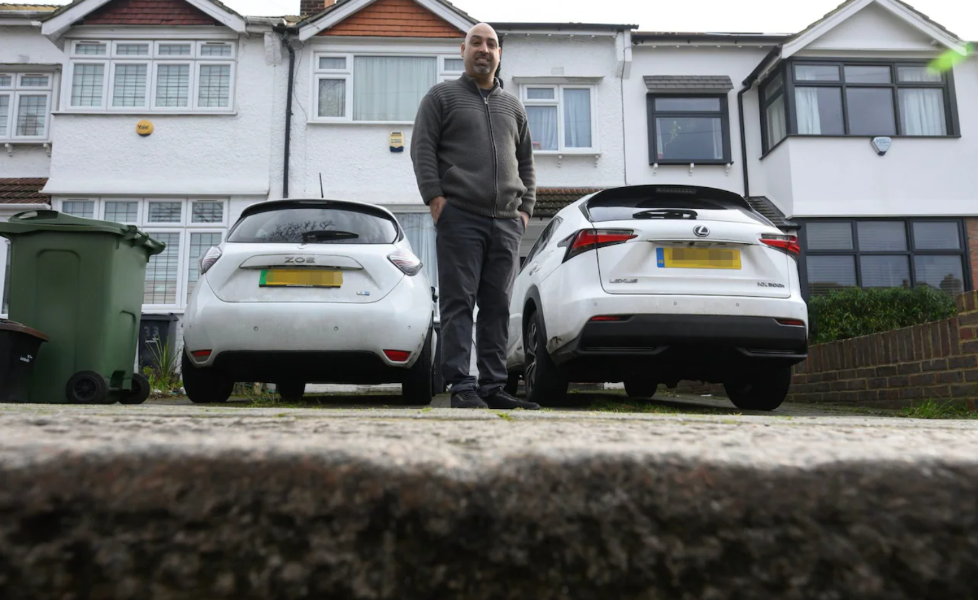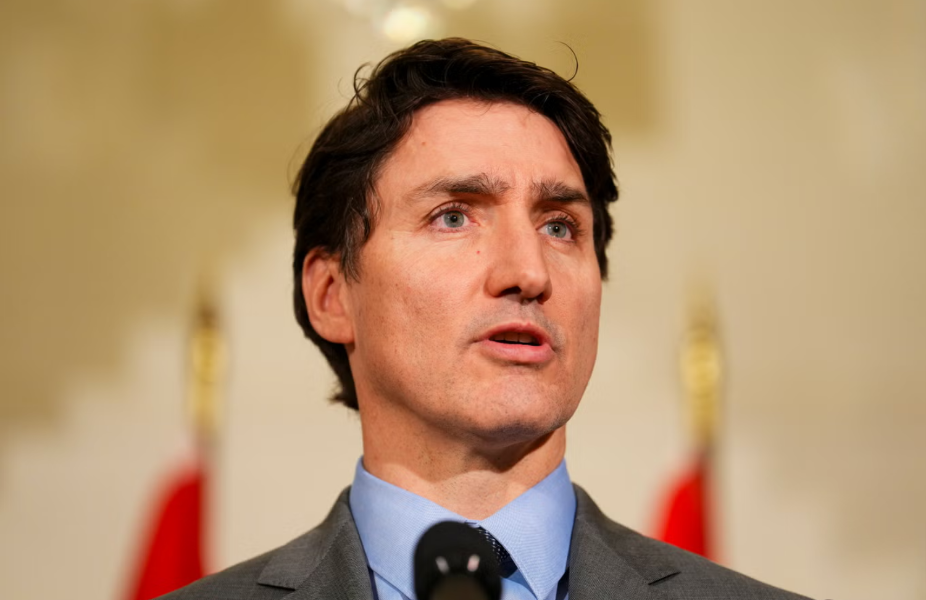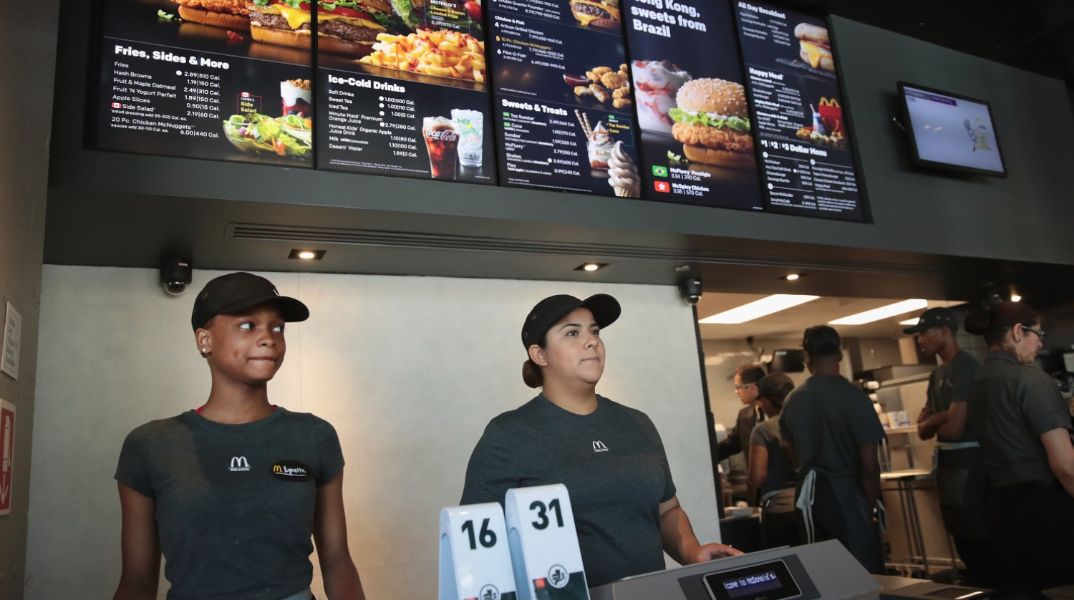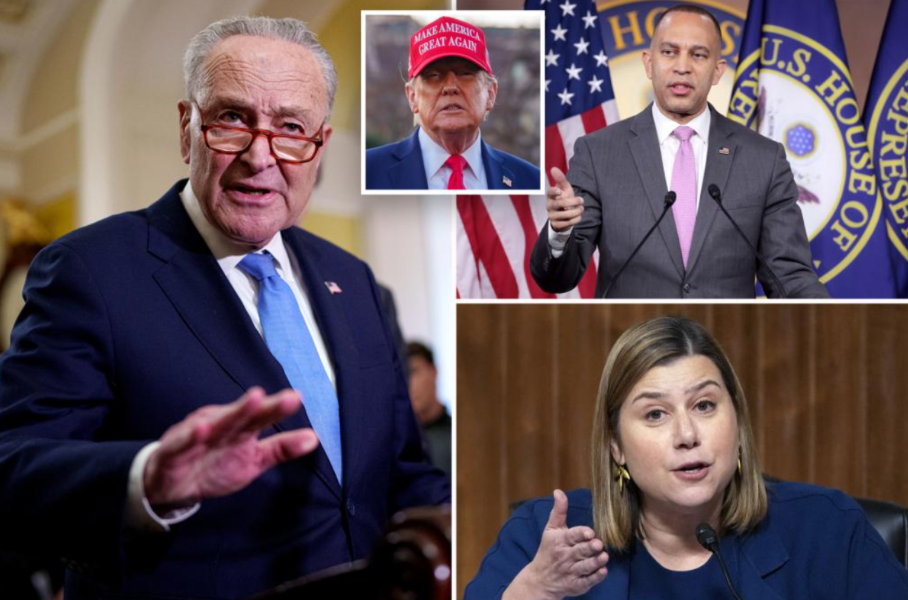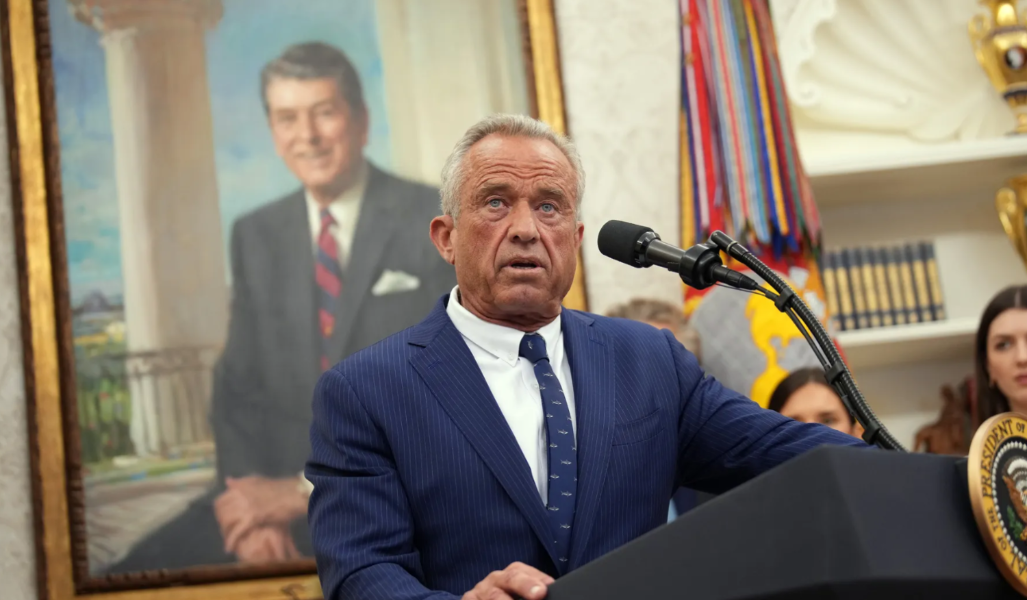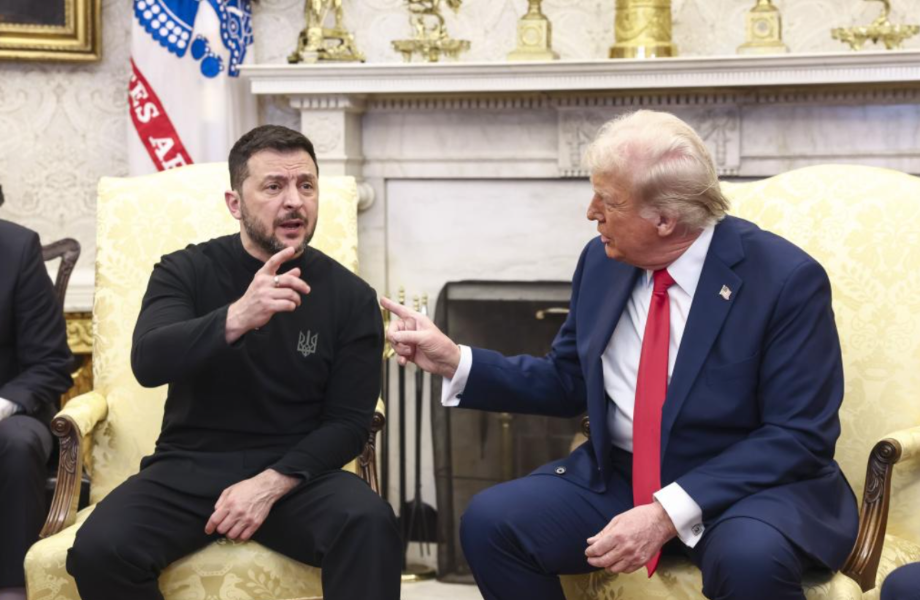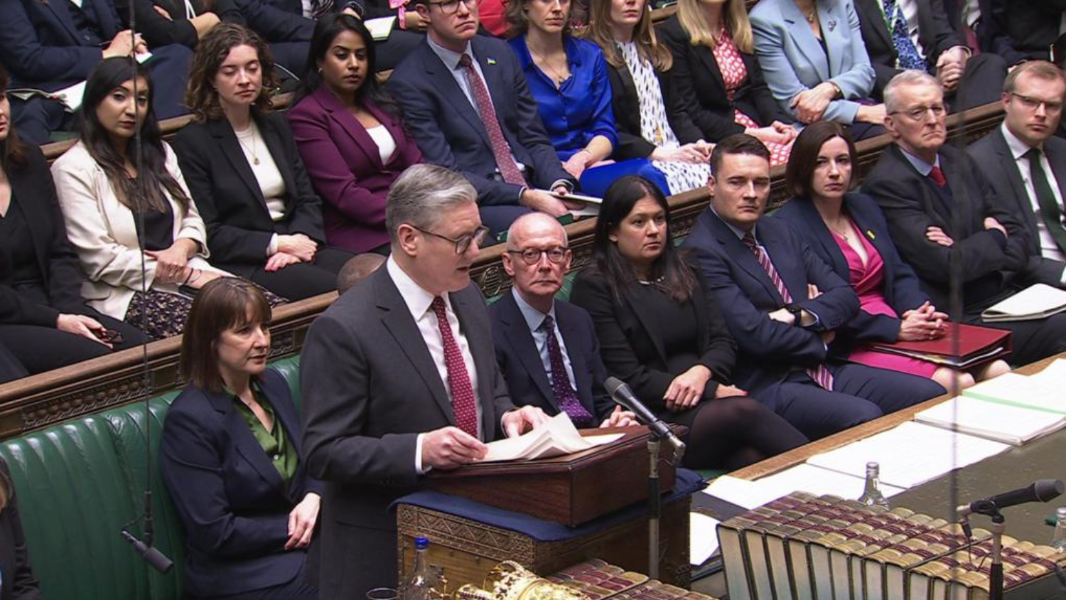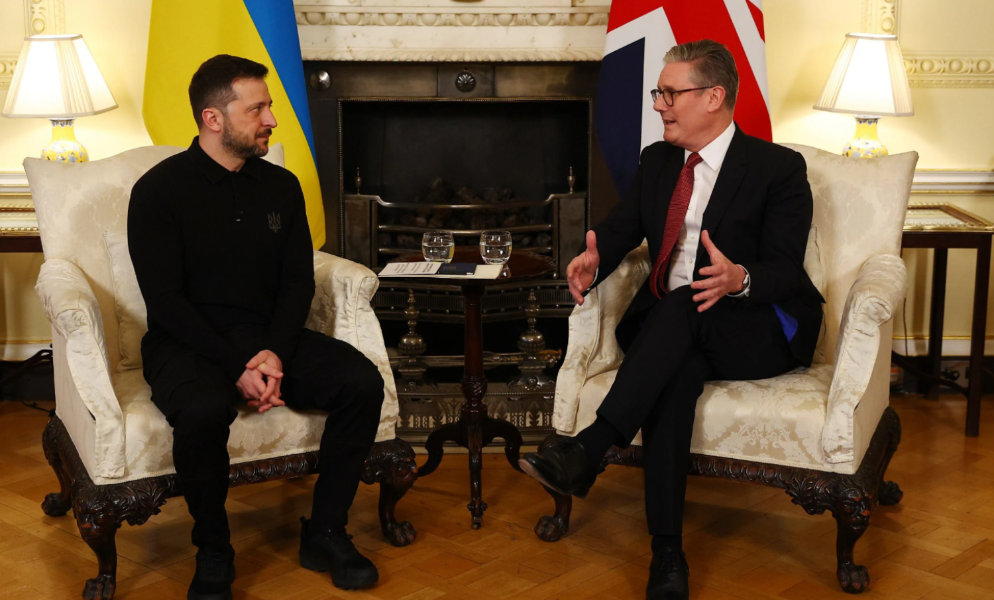-
Posts
9,979 -
Joined
-
Last visited
Content Type
Events
Forums
Downloads
Quizzes
Gallery
Blogs
Everything posted by Social Media
-
Channel 4 News is facing renewed criticism after it was revealed that its award-winning coverage of the Israel-Hamas war included footage of the son of a senior Hamas official without disclosing his identity. The controversy follows the BBC’s decision to retract a documentary that also featured the teenager due to "serious flaws" in its production. Watch the son of a Hamas minister push a lie that Israel chose his fate. No Abdullah. Your dad and his Hamas mates did. And Channel 4 happily share this scripted junk as news. Abdullah was first introduced to Channel 4 News viewers in November 2023 under the name “Abdullah Abu Shamala.” He was shown touring the ruins of Khan Younis after an Israeli airstrike, while a man later identified as his uncle, Khalil Abu Shammala, was presented as his father. Khalil Abu Shammala was previously the director of Al Dameer, an NGO that advocates for Palestinian prisoners in Israeli jails. Collier argued that the segment was misleading, as it implied Israeli strikes were targeting civilian areas with no Hamas presence. “Yet moments later, the audience meets a family now known to be led by a Hamas minister. This crucial detail was withheld, creating the false impression of an ordinary Palestinian household,” he said. In a later broadcast on December 11, 2023, Abdullah appeared again, claiming to be searching for food and water while describing his situation as “living hell on earth.” By April 2024, Channel 4 News reported that Abdullah and his family had fled to Rafah, where he was selling sweets on the street to survive. His father’s position within Hamas was still not disclosed. During that broadcast, Kermani stated: “We began following 13-year-old Abdullah shortly after Israel’s war on Gaza began. Forced to flee again and again, he’s now in Rafah, selling sweets to try and help support his family.” Abdullah, standing at a makeshift stall with a few chocolate bars, said: “I never thought I would sell chocolate to make a living. I used to study in a professional school. Now there’s no school. There’s nothing, just selling stuff for living to make it out of this hell we are in.” He also expressed frustration, blaming Israel for his situation: “From a student to a seller. Why? Why? I didn’t choose this fate. Nobody chose this fate. Israel chose this fate for me.” In response to the controversy, ITN, which produces Channel 4 News, defended its coverage, stating that no payments were made to Abdullah’s family and rejecting claims that his statements were scripted. ITN also asserted that Abdullah did not appear in the specific reports that won Bafta, RTS, or International Emmy awards, though RTS has confirmed its award is now under review. A Channel 4 News spokesperson stated that Abdullah was sourced through an experienced journalist who had also worked for other major global media outlets. The spokesperson acknowledged that the boy’s identity was initially miscommunicated due to an error by a local fixer and that the programme ceased featuring him after learning of his father’s position in Hamas. Channel 4 News said that once its senior leadership became aware of the situation, they acted to provide additional context to archived reports. Social media posts that could not be updated were removed as part of “standard editorial procedures.” The changes were made on February 20, 2025. With increasing scrutiny on its reporting, Channel 4 News now faces pressure to retract its coverage featuring Abdullah, while its journalism awards remain in question. Based on a report by Daily Telegraph 2025-03-05 Related Topics: BBC Could Face Counter-Terror Investigation Over Payments to Hamas Official’s Family BBC Admits ‘Serious Flaws’ in Gaza Documentary, Apologizes for Oversight Did BBC Pay Hamas Members To Be In Documentary? BBC Faces Fresh Backlash Over Alleged Gaza Documentary Cover-Up BBC Doc Features Son Of Hamas Leader but Fails to Disclose to Viewers
-
Meghan Markle is embracing the learning process as she navigates the launch of her lifestyle brand, *As Ever*. In a rare interview with *People* published Monday, the Duchess of Sussex, 43, acknowledged that the journey has not been without its difficulties, admitting to making “mistakes” along the way. Meghan Markle is BANNED from selling clothes under ‘As Ever’ brand due to mix-up with Chinese ‘fast fashion’ firm “There are tons of twists and turns — even with the name,” Markle told *People*. “I was figuring it out in real time.” Markle first announced *American Riviera Orchard* in March 2024, but by November, her team had requested a three-month extension from the USPTO to continue the trademark process. However, in February 2025, she rebranded the business as *As Ever*, marking a fresh start for the venture. While the official launch date of *As Ever* remains unclear, Markle’s brand is expected to offer a range of products, including a signature jam. Speculation suggests that the launch may coincide with the release of her upcoming Netflix series, *With Love, Meghan*, which premieres Tuesday. Despite the rebranding efforts, controversy has followed *As Ever*. A small town in Mallorca, Spain, accused Markle of using a logo similar to its traditional coat of arms. Additionally, a New York-based clothing company, also named *As Ever*, raised concerns over the moniker of her brand. In her interview, Markle also shared insights into the personal inspiration behind her brand’s website, which features a photograph of her and her daughter, Princess Lilibet, 3. “Being able to have my own little girl, as I’ve spent so much of my life championing the rights of girls and women, and to be able to see this as a multigenerational story — Archie is of course included in that, my husband is of course included in that — but I love the heritage feeling of it and knowing this is something that I can create in front of my daughter and teach her what it’s like to be a working mom,” she explained. “This is something that hopefully can be part of her legacy too.” Markle, a former *Suits* actress, also made it clear that she does not consider herself an influencer. “I see myself as an entrepreneur and a female founder,” she said. “And if the brand ends up influential, then that’s great.” As Markle continues to navigate the world of business, she remains focused on building *As Ever* into something meaningful, despite the obstacles she has faced. Based on a report by NYP 2025-03-05
-
A recent report has revealed that the Home Office misclassified hundreds of child asylum seekers as adults last year, resulting in them being housed in hotels and detention centers alongside adults. The report comes amid a surge in small boat crossings, with 592 migrants arriving on Sunday alone—the highest daily total so far this year. The overall number of small boat arrivals in 2024 has now reached 2,255, a 20% increase compared to the same period last year. Approximately one in six migrants crossing the Channel are unaccompanied children. Disturbing new evidence from French authorities suggests that people smugglers are launching dinghies from as far south as Dieppe, Normandy—80 miles from Calais—illustrating the increasingly dangerous routes migrants are taking to reach the UK. A coalition of more than 100 organizations, known as the Refugee and Migrant Children’s Consortium, conducted the study and found that more than half of asylum age assessments last year incorrectly classified individuals as adults. Data from 63 local authorities in England and Scotland revealed 603 cases where agencies suspected young migrants had been wrongly placed in adult accommodations or detention centers following Home Office age assessments. These assessments have faced criticism for relying too heavily on an individual’s physical appearance rather than a thorough evaluation of their age. Of the 493 cases where a determination was reached, 262 individuals were ultimately found to be children. The remaining cases involved individuals assessed as adults, those challenging their classification, or those who had been relocated to a different local authority, requiring a reassessment. In some cases, the outcomes remained unclear due to ongoing assessments or a lack of recorded data. The report highlighted serious risks faced by misclassified children, with some as young as 14 being housed alongside adults in hotels. This left them vulnerable to exploitation and abuse, with incidents of violence and sexual assault reported in several hotels where misidentified minors were placed. Additionally, the report revealed that some children were wrongly convicted of crimes related to illegal entry into the UK due to being classified as adults. Under-18s are exempt from these offenses, yet between June 2022 and September 2024, 510 people who arrived via small boats were charged with illegal entry. This included 26 cases where children wrongly identified as adults faced criminal charges, and at least 16 children were detained in adult prisons, exposing them to significant risk. Many asylum seekers lack documentation to verify their age, making assessments challenging. The report found that Home Office caseworkers and Border Force officers increasingly conducted age assessments instead of local authorities, despite local authorities using more thorough Merton-compliant assessments. These evaluations involve in-depth background research and analysis, differing significantly from the rapid initial assessments conducted at the border. The previous government had changed the law to introduce scientific methods for age verification, including MRI scans of knees and collar bones, as well as X-rays of wisdom teeth, wrists, and hands. However, the current government has not yet implemented these measures and has not confirmed whether they intend to do so. The report stressed that unaccompanied children often arrive in the UK after experiencing severe trauma, having fled war, violence, and persecution, only to be subjected to further distress by being misclassified. Children who are not believed about their age face a lack of support, are deprived of education, and miss out on the protections afforded to minors. Adil, one of the children wrongly classified as an adult, shared his experience: "When I told them I was 16 years old, they didn’t accept my age. They said no, you haven’t got any evidence. I was in a very critical situation; we had been through many problems. They said you have to show me your evidence. I said I hadn’t got anything, but I can get it if you give me some time. But they put me straight away into a hotel. I went there and spoke with the manager. I said the age which the Home Office has chosen for me is not mine. The place where I was living, the people were all adults. That situation can put me in trouble.” He continued, "I was waiting for two months. After that, they sent some social workers. There were many people in the same situation. When the social worker came, I spoke with them. I said it’s not my real age. In our country, it’s a war-afflicted country, it’s not the same as in the UK. We look different. It’s all about the situation, it doesn’t mean we are 24 or 25. They asked me many questions, then they accepted my age and put me with young people. Many people are facing this, and I want to avoid this happening to other young people.” Meanwhile, court documents revealed that France has agreed to take back two children, aged six and nine, who were separated from their parents during a small boat crossing last July. The parents attempted to use the European Convention on Human Rights to secure their own transfer to the UK, but a High Court judge ruled that the children should instead be reunited with their parents in France. This marks the first known case of such an agreement since Brexit, which ended EU family reunion provisions in 2020. A Home Office spokesperson defended the agency’s approach, stating, "We will never compromise on border security. We have robust processes in place to verify and assess an individual’s age where there is doubt and where there is no documentary evidence, including the National Age Assessment Board, of a team of trained social workers whose task is to conduct full age assessments. We continue to review all options to improve age assessment." The findings of the report have raised serious concerns about the treatment of child asylum seekers in the UK and have called into question the accuracy of the Home Office’s assessment procedures. Based on a report by The Times 2025-03-05
-
A woman who sought more than £400,000 in compensation for an arm injury has had her claim dismissed after surveillance footage revealed her engaging in sports and handling strong dogs. Hazel Boyd, who runs a dog daycare business, claimed she had suffered a severe arm injury after being thrown from a horse while working as a stablehand. However, a High Court judge ruled that she was guilty of “dishonest exaggeration” after video evidence showed her playing rugby and football, as well as walking a large husky using her supposedly injured arm. Boyd stated that her injury occurred in 2020 when she was thrown from a three-year-old thoroughbred named Foxy while working for trainer Debbie Hughes at Ty’r Heol Farm in Llanelli. She alleged that the horse was dangerous and that the accident left her with a permanently disabled right arm, preventing her from continuing her riding career. Seeking damages, she claimed up to £368,000 in lost earnings, in addition to other compensation, despite having since established a dog daycare business. However, Hughes challenged the claim, arguing that Boyd had significantly exaggerated her disability. Social media posts and surveillance footage were presented in court, revealing Boyd participating in football and rugby training, as well as walking multiple dogs, including a strong husky, for extended periods. “A husky is a large dog,” barrister Georgina Crawford told the court, pointing out that Boyd was using her allegedly disabled arm to control the animal. The court was also shown images of Boyd playing rugby. Boyd, a former member of the Llantwit Fardre Pink Rhinos women’s rugby team, defended herself by claiming she had only participated in non-contact training to aid her recovery. “It shows me training, not playing rugby. There’s a difference. Training is non-contact; it’s tag,” she stated. Despite her arguments, Mr Justice Cotter ruled against Boyd, stating that she had failed to provide convincing evidence that Foxy had been spooked by a threat, rather than simply reacting to something on the gallop surface. He also found that she had deliberately exaggerated her symptoms and level of disability when consulting medical experts. However, he stopped short of declaring her actions as “fundamental dishonesty,” which would have resulted in her having to cover the defendant’s legal costs. Although Boyd’s claim was dismissed, personal injury claimants are generally protected from paying the defendant’s legal costs unless they are found to have acted fraudulently. As a result, despite the judge ruling that Boyd had “consciously exaggerated” her condition, she will not face additional financial penalties. Based on a report by The Times 2025-03-05
-
A bill that sought to prohibit transgender women and girls from competing in school sports designated for female athletes failed to move forward in the Senate on Monday night. The legislation, which had been a key talking point for Republicans during last year’s elections, was blocked as Senate Democrats remained unified in opposition. The test vote on the bill ended in a 51-45 tally, falling short of the 60 votes required for advancement. Senators largely voted along party lines, signaling the deep divide on the issue. The proposed legislation aimed to define Title IX protections strictly according to “a person’s reproductive biology and genetics at birth.” Republicans have repeatedly highlighted this matter as a fairness issue in women’s athletics. President Donald Trump recently signed an executive order granting federal agencies broad authority to enforce Title IX in line with his administration’s interpretation, which defines “sex” as the gender assigned at birth. However, congressional Republicans have been pushing to cement this stance into law by amending the 1972 Title IX statute, which safeguards individuals from sex-based discrimination in federally funded education programs. “Across the country, we have seen men—biological men who identify as women—occupy spots and win medals in athletic competitions meant for actual women,” said Senate Majority Leader John Thune, R-S.D. “This is a matter of fairness and equality.” A similar bill had already passed in the House with only two Democrats voting in favor, but its failure in the Senate underscored the uphill battle for any legislation perceived as targeting LGBTQ individuals. Democrats criticized the bill as an unnecessary distraction from more urgent national concerns and an overstep of federal authority into local school policies. “What Republicans are doing today is inventing a problem to stir up a culture war and divide people against each other,” said Sen. Brian Schatz, D-Hawaii, during a floor speech. Sen. Tammy Baldwin, D-Wis., argued that decisions regarding transgender participation in sports should be left to sports leagues rather than dictated by broad federal mandates. “This is a decision for sports leagues to thoughtfully craft policy that actually takes seriously what is best for all players, not blanket mandates that will undoubtedly have unintended consequences for the safety of all students,” she stated. Despite the Senate setback, Republicans appear poised to continue pressing the issue. Trump’s campaign found that the topic resonated with voters across the political spectrum. More than half of those surveyed by AP VoteCast indicated they believed that support for transgender rights in government and society had gone too far. Following Trump’s executive order, the NCAA revised its policies, restricting participation in women’s sports to athletes who were assigned female at birth. Meanwhile, in Minnesota, the state House prepared for a similar debate on a GOP-backed bill that would apply to primary and secondary schools. Ahead of the debate, supporters of the measure rallied at the state Capitol in St. Paul, emphasizing their stance that the bill was about safeguarding opportunities for female athletes and ensuring a fair playing field in sports. Conversely, Democrats and LGBTQ+ advocacy groups condemned the bill as discriminatory. Kelley Robinson, president of the Human Rights Campaign, denounced the measure, stating, “Every child should have the opportunity to experience the simple joys of being young and making memories with their friends. But bills like these send the message that transgender kids don’t deserve the same opportunities to thrive as their peers simply because of who they are.” Based on a report by NYP 2025-03-05
-
Ukraine remains committed to working closely with the United States despite the recent announcement that US aid to Kyiv is being put on hold. Prime Minister Denys Shmyhal reaffirmed the importance of American support, stating that military aid from Washington has been "critical" and has saved countless Ukrainian lives. He also emphasized Ukraine's readiness to finalize an agreement granting the US access to the country's rare earth mineral deposits, saying, "We are ready to sign." Shmyhal expressed gratitude for America's steadfast support over the past three years and extended his appreciation to Europe as well. He praised European Commission President Ursula von der Leyen's newly proposed defence funding plans, calling them "an important first step." Meanwhile, political tensions have emerged within Ukraine regarding President Volodymyr Zelensky’s recent visit to the White House. Oleksiy Goncharenko, a member of the opposition European Solidarity party, criticized Zelensky’s conduct during a meeting that included Donald Trump and JD Vance. Speaking to BBC Cymru, Goncharenko said, "Zelensky should have acted in a different way because it's not a kindergarten, it's not boxing. It's about the lives of millions of people." He argued that the Ukrainian leader must apologize, adding, "What is more important, the pride of President Zelensky or the lives of millions of people for whom he is responsible?" The pause in US aid is expected to have significant military implications for Ukraine. Ben Barry, a senior fellow for land warfare at the International Institute for Strategic Studies, discussed the potential consequences on BBC Radio 4’s World at One. "Intelligence has been a key part of US, UK, and Western support to Ukraine, but the US is the world’s intelligence superpower, and neither the British nor the rest of Europe could quickly fill the gap from the vast US intelligence assets," he said. Barry warned that Ukraine would be particularly affected by the absence of Patriot missile systems. "The thing that will worry Ukraine most is the non-supply of Patriot missiles, which have this unique capability to intercept incoming ballistic missiles and have more capability in this than anything that Europe’s got." He also pointed out that Europe does not supply long-range artillery or short-range ballistic missiles, further complicating Ukraine's defence strategy. Despite the pause in American aid, the UK's Chancellor Rachel Reeves reassured that the US remains the UK's closest defence and security partner. "That will continue to be the case," she said, noting that there is a "recognition across Europe that we must step up" to ensure the continent's collective security. Following his tense exchange with Donald Trump at the White House, President Zelensky acknowledged that the meeting had not gone as intended. "Our meeting in Washington, at the White House on Friday, did not go the way it was supposed to be," he wrote in a post on X. "It is regrettable that it happened this way. It is time to make things right." He reaffirmed Ukraine’s "commitment to peace," stressing that "none of us wants an endless war." Zelensky signaled Ukraine's willingness to negotiate as soon as possible, stating, "Ukraine is ready to come to the negotiating table as soon as possible to bring lasting peace closer." "Nobody wants peace more than Ukrainians. My team and I stand ready to work under President Trump’s strong leadership to get a peace that lasts," he added. "We are ready to work fast to end the war." Zelensky also hinted at possible initial steps toward peace, including a truce in the air and at sea, provided that Moscow agrees to do the same. He reiterated Kyiv's willingness to sign the US-proposed mineral deal, describing it as a "step" towards securing broader guarantees for Ukraine's security. Based on a report by BBC Live 2025-03-05
-
In a fiery press conference during his final week in office, Canadian Prime Minister Justin Trudeau condemned the new tariffs imposed by the United States, calling the move “a dumb thing to do.” He accused the US of launching “a trade war against… its closest partner and ally, its closest friend.” In response, Canada plans to impose 25% tariffs on $155 billion worth of American goods, starting with an immediate tariff on $30 billion worth of imports. Trudeau also announced that Canada will file a legal challenge at the World Trade Organization (WTO), arguing that the tariffs violate an existing free trade agreement with the US. Trudeau directly addressed the American people, making it clear that Canada did not “want this” and accusing President Donald Trump of endangering American jobs by escalating trade tensions. He reiterated that the tariffs were unjustified and unnecessary, emphasizing, “There is absolutely no justification or need for these tariffs today.” He also mentioned his past collaboration with Trump on major issues and said he expected to speak with the US president in the coming days. During the press conference, Trudeau was asked whether the tariffs amounted to an act of war. He reiterated that the US had initiated a “trade war” and warned that it would hurt both nations, particularly American families. He stressed that Canada would not allow itself to be divided over this issue, urging unity among Canadians. When asked what Trump hoped to achieve with the tariffs, Trudeau dismissed the US president’s claim that they were related to fentanyl as “bogus” and “completely false.” Instead, he argued that Trump’s real goal was to “see a total collapse of the Canadian economy,” making it easier for the US to annex Canada. He firmly rejected this notion, declaring, “Canada will never be the 51st state.” He added, “We are Canadians, we will fight, and we will win.” Trudeau also criticized Trump’s stance on the opioid crisis, asserting that Canada had already taken significant action to combat fentanyl production. He accused Trump of undermining previous agreements between the two countries and insisted that claims of Canadian inaction on the issue were “totally false.” Shortly after Trudeau’s press conference, Trump responded on social media, warning that any retaliatory tariffs from Canada would be met with an equal increase in US tariffs. Referring to Trudeau as “Governor Trudeau,” Trump appeared to continue pushing the narrative that Canada should be absorbed as a US state, a notion that Trudeau had strongly rejected. Based on a report by BBC 2025-03-05
-

US Halts Military Aid to Ukraine Amid Push for Peace Talks
Social Media replied to Social Media's topic in World News
A couple of posts removed, discussion = good. Trolling meme = lazy. -

Trump Slams Zelensky Over Grim War Outlook, Warns of Consequences
Social Media replied to Social Media's topic in World News
UPDATE: US Halts Military Aid to Ukraine Amid Push for Peace Talks -

US Halts Military Aid to Ukraine Amid Push for Peace Talks
Social Media posted a topic in World News
The United States has decided to pause military aid to Ukraine, with the White House emphasizing the need for a commitment to peace from all parties involved. "The President has been clear that he is focused on peace. We need our partners to be committed to that goal as well. We are pausing and reviewing our aid to ensure that it is contributing to a solution," a White House official told CBS News, as reported by the BBC. Reports indicate that all weapons currently in transit to Ukraine will be put on hold. Bloomberg adds that US military equipment, including weapons still at depots in Poland, will also be affected by this pause. Officials suggest that this measure is temporary and will remain in place until President Trump is satisfied that Ukraine is demonstrating a commitment to peace negotiations with Russia. The Trump administration appears to be pressing Ukrainian President Volodymyr Zelensky to accept an economic agreement regarding mineral resources and to engage in peace talks with Russia, rather than providing him with the security assurances he has requested. Instead of focusing on military support, Trump’s aides have shifted discussions toward potential "economic assurances" for Ukraine. The timing of this move is significant, occurring less than 24 hours before President Trump’s scheduled address to Congress. This address presents him with an opportunity to highlight his administration’s actions and achievements, with securing a peace deal between Ukraine and Russia being a priority he has long pursued. During an interview with Fox News, Senator JD Vance stated that the possibility of renewed negotiations remains open, but only if Ukraine is serious about peace. "Of course, the door is open," Vance said, adding, "So long as Zelensky is willing to seriously talk peace. You can't come into the Oval Office or anywhere else and refuse to even discuss the details of a peace deal." According to Vance, the core issue is Zelensky’s insistence on security guarantees before engaging in peace discussions, whereas the White House maintains that such assurances should only come after a deal is reached. "When they're willing to talk peace, I think President Trump will be the first person to pick up the phone," Vance stated. As the situation unfolds, the halt in military aid marks a major shift in US policy toward the ongoing conflict, signaling a push for diplomatic resolutions over continued military assistance. Based on a report by BBC 2025-03-04 -
Residents in Lambeth have accused the local Labour council of treating motorists as “cash cows” after officials began targeting homeowners for “illegally” parking on their own driveways. The south London council has identified nearly 200 homes in Streatham Vale where occupants are driving over pavements without officially approved dropped kerbs, prompting demands for hefty fees to formalize access. A recently created council map marks these homes with a red X, highlighting what it describes as “illegal crossovers” where vehicles are driven over footways to reach private property without permission. To make these driveways legal, homeowners are now being asked to pay thousands of pounds, a move that could reportedly generate up to £1 million in fees for the council. The crackdown is being justified under Lambeth’s “kerbside strategy,” which the council claims will help address the climate emergency. The policy argues that “free unrestricted parking” has a negative impact on the environment and aims to encourage more sustainable urban features like parklets, cycle parking, and public seating. According to the council’s research, 4 percent of the cars in the area parked off-street appear to have unauthorized vehicle access, which conflicts with these sustainability goals. Homeowners were warned in a council pamphlet that if they do not formalize their driveways in accordance with council policies, parking bays could be placed in front of them, effectively blocking access to their own property. The cost of obtaining “dropped kerbside access” through an individual application is £4,000, and this does not include additional costs for construction, planning permission, or utility clearances. Ashad Khan, a 48-year-old research scientist who has lived in his Streatham Vale home for 20 years, expressed frustration over the policy. He currently parks his hybrid and electric vehicles on his unofficial driveway to access a charging point but now faces significant costs to maintain that access. “We will now have to pay to park in front of our house or consider paying thousands of pounds for a legal crossover,” he said. “It’s an excuse to make money. We paid a premium for these vehicles because they are environmentally friendly. Now the council is penalizing us.” Neil Salt, a representative from Streatham and Croydon North Conservatives, acknowledged that unapproved crossovers were technically illegal but questioned why the council was suddenly enforcing regulations that had been ignored for years. “It raises the question as to why they are seeking to levy this huge cost now. It couldn’t possibly have anything to do with the fact the council currently needs to save over £69 million over the next four years, could it?” he said. Salt also criticized the £4,000 fee, calling for it to be reduced to align with neighboring councils, which charge around £3,000 for a similar service. He further pointed out the excessive cost of simple road markings, noting that while Lambeth charges £261.27 to paint or refresh a white line, Merton council offers the same service for just £80 or £40, respectively. “Yet again, Lambeth is using car owners as cash cows for assisting with its financial predicament,” he said. In the 2023/24 financial year, Lambeth Council raised £53.7 million from parking-related income, and some residents see the driveway enforcement as just another means of increasing revenue. The crackdown coincides with a consultation about introducing resident parking permits in Streatham Vale to prevent commuters from parking for free before taking trains into central London. Adding to local frustration, the council recently approved a nearby “car-free” residential tower with 237 homes. Critics argue that this will only increase parking pressures in Streatham Vale, making controlled parking zones more likely. A pamphlet distributed by the council stated, “The car-free status can only have effect if parking controls are in place.” Resident Helen Smith fears the situation is a sign of things to come. “The cost of permits in other parts of the borough has risen sharply, making it clear this is a huge cash cow for Lambeth, and sets a precedent for our area if, or more likely when, it’s introduced,” she said. A Lambeth Council spokesman defended the policy, stating that a “high number of unauthorized crossing points” were discovered during public engagement on parking controls. “It is illegal to drive a vehicle over the pavement without having an authorized vehicle crossover. This requires a resident to make an application, gain approval, and pay for the works to adapt the highway to enable safe access,” he said. The council also argued that driving over pavements not designed for vehicles causes damage that it must repair, while also posing a safety risk by creating obstructions when cars overhang onto footpaths. However, for residents now facing the choice between paying thousands of pounds or losing access to their driveways, the policy feels less like a safety measure and more like a financial burden imposed by an increasingly cash-strapped local authority. Based on a report by The Telegraph 2025-03-04 Related Topics: Lambeth Council to Dim Streetlights Amid Financial Turmoil After £25M Climate Spending
-
Canadian Prime Minister Justin Trudeau is set to meet with King Charles III on Monday, where he plans to bring up U.S. President Donald Trump’s recent threats to make Canada the 51st state. The discussion will center on the growing concerns among Canadians regarding their nation’s sovereignty and the perceived silence of the monarchy on the issue. Speaking in London on Sunday, Trudeau emphasized the importance of defending Canada's independence. “Nothing seems more important to Canadians right now than standing up for our sovereignty and our independence as a nation,” he stated. The meeting with King Charles is expected to touch on the role of the monarchy in addressing matters that impact Canada, a member of the British Commonwealth. King Charles has faced criticism for his lack of response to Trump’s remarks, with some questioning whether the monarch should be more vocal in defending Canada’s sovereignty. Former Alberta Premier Jason Kenney weighed in on the issue, noting that Charles can only act on the advice of the Canadian government. “The Government of Canada should ask the Head of State to underscore Canadian sovereignty,” Kenney wrote on X. Although the monarchy remains a fixture in Canadian governance, the institution has struggled to maintain the level of public affection once enjoyed by the late Queen Elizabeth II. The Queen, whose silhouette still appears on Canadian currency, was widely admired and visited the country 22 times during her reign. In contrast, King Charles’ visits have drawn significantly smaller crowds, reflecting a more indifferent attitude toward his role as Canada’s head of state. The growing debate over the monarchy’s relevance in Canada has been reignited by Trump’s annexation threats. Some argue that if the King cannot speak out on such a fundamental issue, his position as Canada’s head of state should be reconsidered. “Canadians will need to decide what purpose King Charles III serves as King of Canada if he can’t even speak up for our sovereignty,” former Canadian public servant Artur Wilczynski wrote on X. Abolishing the monarchy would be no small feat, as it would require a constitutional amendment—a challenging process in a nation as diverse as Canada. With a population of 41 million people, including English- and French-speaking citizens, Indigenous communities, and a steady influx of immigrants, any attempt to overhaul the constitutional structure carries significant risks. As Trudeau prepares for his meeting with King Charles, many Canadians will be watching closely to see whether the monarchy will take a stand on the country’s sovereignty or remain silent in the face of Trump’s controversial remarks. Based on a report by The Independent 2025-03-04
-
European leaders are increasingly concerned about President Donald Trump’s intentions regarding U.S. military forces stationed on the continent. As tensions grow between Washington and its European allies, speculation over a potential drawdown of American troops has fueled anxiety about the long-standing transatlantic security arrangement that has underpinned Europe’s defense since World War II. With little clarity on Trump’s plans, European officials fear anything from a symbolic withdrawal to a significant reduction in forces. The key concern is ensuring that any potential shift in U.S. military presence is not dictated by negotiations between Washington and Moscow, as European leaders worry that such a move could leave NATO’s eastern flank exposed before they can reinforce their own defenses. “This is what they have in mind when they say nothing about European security without Europeans in the room,” said Camille Grand, a former NATO official now with the European Council on Foreign Relations. Last month, several NATO allies left a meeting with U.S. Defense Secretary Pete Hegseth with the impression that a reduction in American troop presence was likely. According to officials, Hegseth indicated that Europe should expect a reassessment of the U.S. military footprint as strategic priorities shift. The possibility of such a realignment has led European leaders to scramble for solutions, including increasing defense spending and modernizing their military capabilities to compensate for a potential gap. Vice President JD Vance has added another layer to the debate, tying the future of U.S. troop deployments to European domestic policies. He has openly criticized European leaders for their stance on right-wing political movements and linked military support to broader policy disagreements. “There are thousands upon thousands of American troops in Germany today,” Vance said last month. “Do you think that the American taxpayer is going to stand for that if you get thrown in jail in Germany for posting a mean tweet? Of course they’re not.” Germany currently hosts more than 35,000 U.S. troops, the largest American military presence in Europe. According to three European diplomats, the additional 20,000 U.S. troops deployed by the Biden administration during the early stages of the Ukraine war are expected to be withdrawn. “I would not be surprised if at some point [those troops] go back to their home base in America,” said a NATO diplomat. While the initial deployment was an emergency response, a withdrawal would be seen as a return to pre-war conditions. Further complicating the situation, there are discussions about whether European nations should send a postwar force to Ukraine to support a ceasefire. Such a move could impact their ability to fill any gaps left by a U.S. troop reduction elsewhere, making negotiations with the Trump administration even more complex. U.S. European Command reports that the number of American forces in Europe has fluctuated between 75,000 and 105,000 since 2022, with approximately 63,000 permanently stationed there. However, analysts argue that the presence of U.S. forces matters just as much as the exact numbers. “It’s the sort of physical embodiment of the commitment to European security,” Grand explained. Beyond just manpower, U.S. forces bring critical capabilities that European militaries still lack, particularly in surveillance, intelligence, and long-range strike capabilities. The presence of American troops also serves as a deterrent and ensures NATO’s ability to respond quickly to potential threats. As European leaders prepare for future discussions with the Trump administration, they are working to secure their own defenses while seeking assurances that any shifts in U.S. military posture will not come at the expense of European security. Based on a report by WP 2025-03-04
-
Speaker Mike Johnson has suggested that Ukrainian President Volodymyr Zelenskyy may need to either reconsider his stance or resign to bring an end to the ongoing war in Ukraine. During an appearance on NBC’s *Meet the Press* on Sunday, Johnson echoed sentiments previously expressed by Sen. Lindsey Graham, stating, “Something has to change. Either he needs to come to his senses and come back to the table in gratitude, or someone else needs to lead the country to do that.” “The fact that he acted as he did, I think, was a great disappointment,” Johnson later said in an interview on CNN’s *State of the Union*. Originally, Zelenskyy’s visit was intended to include the signing of a minerals agreement meant to bolster Ukraine’s future security. However, following the Oval Office dispute, the remainder of his visit was abruptly canceled. Trump later took to Truth Social, writing that Zelenskyy had “disrespected the United States in its cherished Oval Office” and would only be welcome back “when he is ready for Peace.” After the argument, Zelenskyy was expelled from the White House, further fueling criticism of Trump’s handling of the situation. On Saturday, Sen. Lisa Murkowski, a Republican who has been openly critical of Trump, condemned his actions. In a post on X, she warned that the U.S. was “walking away from our allies and embracing Putin.” Johnson rejected Murkowski’s criticism, stating on CNN that she was “plainly wrong” and asserting that “the person who walked away from the table yesterday was President Zelenskyy.” Although Johnson stood by Trump’s position on Zelenskyy’s role in the failed meeting, he did not hesitate to condemn Russian aggression. In contrast to Trump, who has often avoided strong rhetoric against Russia, Johnson was clear in his stance against Moscow. “I’d like to see Putin defeated, frankly,” Johnson said on NBC. “He is an adversary of the United States. But in this conflict, we’ve got to bring it into this war. It’s in everybody’s interest.” On CNN, he reiterated his position, stating, “Putin is the aggressor. It is an unjust war. We have been crystal clear about that.” Based on a report by Politico 2025-03-04
-
New analysis has revealed the stark contrast in economic performance between the United States and the United Kingdom since the 2007 financial crisis, highlighting a widening wealth gap driven by investment levels, tax policies, and economic strategy. While the US economy has flourished under successive administrations, the UK has faltered, weighed down by infrastructure failures, a heavy tax burden, and the fallout from Brexit. Since 2007, income per capita in the US has surged by 72%, while in the UK, it has actually declined by 2% in dollar terms. According to data from New World Wealth, GDP per capita in America now stands at $82,800 (£65,767), compared to $49,500 in Britain. This marks a dramatic reversal from 2007 when the UK’s income per capita was higher than that of the US. Though GDP per capita is not a flawless measure of individual prosperity, wage disparities between the two nations further illustrate the economic gap. For instance, a McDonald’s manager in the UK earns an average of £32,649 ($41,074), while their American counterpart makes $55,300. In practical terms, this means that a US-based manager could afford to purchase 809 Big Macs per month at local prices, compared to just 647 for a UK manager. The financial divergence is also evident in the stock markets. The S&P 500, the main US stock index, has soared by 306% since 2007, reflecting the dominance of American tech giants such as Apple and Google. Meanwhile, London’s FTSE 100 has declined by over 20% in dollar terms. The UK has also underperformed on a global scale, with average worldwide income increasing by more than 50% since 2007, while Britain's relative standing has weakened considerably. Part of the explanation lies in the sharp decline of the British pound, which has lost more than a third of its value against the dollar over the past 17 years. However, economists argue that deeper structural issues are to blame. Maxwell Marlow, director of research and education at the Adam Smith Institute, attributes the UK’s economic stagnation to three main factors: a lack of capital investment, planning and infrastructure failures, and high taxation. He explains that scaling up businesses from medium to large size is particularly difficult in the UK due to restrictive capital programmes. “The annual investment allowance is capped at £1 million, while enterprise investment schemes cut off just before a company reaches medium size,” he noted. Marlow also criticized Britain’s complex and restrictive planning system, which he argues stifles development and innovation. “Our sclerotic planning regime makes it incredibly difficult to build without navigating through dozens, if not hundreds, of bureaucratic hoops,” he said. The consequences of this, he added, are evident in rising industrial energy prices as the UK pushes toward sustainability without adequate grid upgrades. Taxation is another key issue. Corporation tax was raised to 25% in 2021, a move Marlow claims was driven by political appeal rather than economic logic. “We rank 30th out of 38 countries globally for tax competitiveness, with high property taxes, complex business levies, and high consumption taxes all lowering the standard of living,” he added. Britain’s sluggish productivity growth has further compounded the problem. Before 2008, productivity doubled over a 35-year span. However, in the 15 years since, it has increased by just 5%. Nick Ridpath, a research economist at the Institute for Fiscal Studies, emphasized the importance of investment in driving economic growth. “Investment can boost productivity—when a car factory buys a new machine, the same workforce can produce more cars in the same amount of time,” he explained. But the UK has persistently lagged behind comparable nations such as France and Germany in investment levels, and the financial crisis further curbed both private and public sector spending. Ridpath also pointed to Brexit as a significant drag on the UK economy. “One key component of GDP is exports,” he said. “By increasing trade barriers between Britain and the EU, Brexit raised the costs of selling goods to the UK’s largest trading partner. This, in turn, has reduced exports and overall economic output.” While the US continues to forge ahead, leveraging its investment in technology, business-friendly policies, and economic resilience, Britain faces the challenge of reversing its relative decline. Without addressing its deep-seated economic weaknesses, the UK risks falling further behind on the global stage. Based on a report by The Sunday Times 2025-03-04
-
A new legislative proposal in New York could result in anti-Israel protesters facing up to four years in prison if they display flags of recognized terrorist organizations such as Hamas or Hezbollah. The Stand Against Flags of Enemy Terrorists (S.A.F.E.T.Y.) Act seeks to expand the definition of aggravated harassment in the first degree, making it a class E felony to publicly display the symbols of foreign terrorist organizations with the intent to harass, threaten, or intimidate others. The bill is being introduced by Manhattan Democrats state Sen. Brad Hoylman-Sigal and Assemblyman Micah Lasher. According to Lasher, the proposed law aligns with existing statutes that prohibit the use of hate symbols such as swastikas, nooses, and flaming crosses. “New York has long recognized there are some symbols that ‘cross the line’ from free speech to fomenting hate and harassment—and the emblems of mass-murdering terrorist organizations certainly belong in that category,” he said. Jewish New Yorkers have increasingly faced harassment and threats, particularly in the wake of Hamas’ deadly attack on Israel on October 7, 2023. That attack, which resulted in war and renewed conflicts with other groups like Hezbollah, has fueled a surge in antisemitic incidents across New York. Anti-Israel protesters in the city have been known to display the flags and symbols of these organizations, using them to provoke and intimidate. On February 23, more than 150 demonstrators gathered in Washington Square Park, where a Hezbollah flag was raised as protesters chanted antisemitic slogans in tribute to Hamas leaders involved in planning the October 7 attack. Sen. Hoylman-Sigal expressed concern over this rise in antisemitism, stating, “Since the October 7th terror attack in Israel, we’ve witnessed a disturbing rise in antisemitic instances here at home, including using symbols and flags of terrorist organizations to harass and intimidate Jewish New Yorkers at their synagogues, businesses, and homes, simply because they’re Jewish.” He emphasized that current laws already prohibit the use of symbols from groups like the Ku Klux Klan and Neo-Nazis to intimidate people and argued that the same restrictions should be applied to symbols associated with foreign terrorist organizations. “No one should be allowed to threaten or harass a New Yorker because they’re Jewish, or any other aspect of their identity protected under state law,” he said. Assemblyman Lasher underscored the importance of the bill, describing it as a necessary measure to combat rising antisemitism. “The S.A.F.E.T.Y. Act will establish an important new tool in the fight against dangerous antisemitism that has sickeningly flourished since the horrific terrorist attack against Israel on October 7th,” he said. Eric Goldstein, CEO of the United Jewish Appeal Federation of New York, voiced support for the legislation, calling the rise in antisemitic harassment “alarming.” He stressed the need to ensure that Jewish New Yorkers do not feel unsafe in their own communities. “No one should have to face intimidation or the feeling that they are unsafe because of their Jewish identity,” he said. “The S.A.F.E.T.Y. Act is a necessary and sensible measure to prevent the use of terrorist symbols as a tool of hate and intimidation.” The introduction of this bill comes at a time when tensions on New York college campuses have been escalating. Last week, a group of anti-Israel protesters, many wearing keffiyehs, took over the administration building at Barnard College in Manhattan and reportedly assaulted a security guard. In another incident, an event scheduled at the City College campus in Harlem was canceled by Gov. Kathy Hochul and CUNY due to security concerns over potential disruptions by anti-Israel demonstrators. If the bill passes, it would add to the state’s existing measures against hate crimes and antisemitic harassment. It would ensure that the public display of terrorist group symbols with the intent to harass or intimidate is treated as a serious criminal offense, reinforcing New York’s stance against hate and extremism. Based on a report by NYP 2025-03-04
-
A new AI-enhanced sex doll has been designed to provide emotional reassurance to men who experience premature ejaculation. Created by Chinese company WMDoll, the lifelike doll is equipped with a cutting-edge AI feature called MetaBox, enabling it to talk and offer encouragement to users. Rather than reacting with disappointment, the doll offers words of support, aiming to satisfy not just physical desires but also emotional needs. “It doesn’t matter, two minutes is awesome,” the AI companion reassures users, ensuring that they feel comfortable and valued. According to reports from Jam Press, the dolls also come with a long-term memory function, allowing them to maintain conversations with users for days at a time—up to three months. This advanced technology creates the illusion of an ongoing relationship, offering companionship beyond mere physical gratification. Users can customize their AI doll’s personality, choosing from eight different options, including gentle and lively, to suit their individual preferences. In addition to its conversational abilities, the latest version of the doll has been made to appear more realistic. The silicone-based skin is soft to the touch, and the doll can perform lifelike movements such as blinking, further enhancing the experience. However, this high-tech intimacy doesn’t come cheap. The MetaBox-powered dolls have a starting price of $1,900, according to NeedToKnow. Currently, they are only available for purchase overseas, with a planned launch in China expected no sooner than April this year. Based on a report by NYP 2025-03-04
-
For the first time in five years, North Korea has opened its doors to Western tourists, offering a rare glimpse into one of the world’s most secretive nations. What the visitors encountered was both surreal and unsettling, from choreographed school performances featuring animated ballistic missile attacks to the strict surveillance that followed them at every turn. A small group of adventurous travelers from the UK, France, Germany, and Australia embarked on a four-day trip to Rason, a remote region in the country’s northeast, facilitated by Young Pioneer Tours. It was the first officially sanctioned tourist visit since the country sealed itself off at the start of the COVID-19 pandemic in 2020. Despite the long absence of foreign visitors, one tourist noted, “They’ve had five years to fix things. North Koreans are so sensitive about what they show tourists. If this is the best they can show, I dread to think what else is out there.” The experience was highly controlled. Travelers had to abide by strict rules, including refraining from criticizing the country’s leadership, mocking its ideology, or questioning its way of life. They were constantly monitored by government minders and, in some cases, even had to ask permission for basic activities. “A couple of times I even had to let them know when I wanted to use the bathroom,” said Mike O’Kennedy, a 28-year-old British YouTuber. “I’ve never had to do that anywhere in the world.” Tourists were given a carefully curated itinerary that included visits to a beer factory, a new pharmacy, and a local school. One of the more bizarre moments came when a group of eight-year-old children performed a musical routine against a backdrop of animated ballistic missiles launching and striking buildings in a fiery explosion. Rowan Beard, a representative of Young Pioneer Tours, emphasized the importance of engaging with North Korean citizens despite the country’s restrictions. “The North Koreans aren’t robots. They have opinions, goals, and a sense of humor. And in our briefing we encourage people to listen to and understand them,” he told the BBC. The response to the reopening was immediate—slots for the tour sold out in just five hours. The group entered North Korea through China and traveled to Rason, a region more than 500 miles from Pyongyang, the capital city that once allowed occasional, highly controlled tourist visits. Unlike the propaganda images released by the ruling Kim family, which depict a modern, gleaming metropolis, visitors found the reality to be far different. “The roads are awful, the pavements are wobbly, and the buildings are weirdly constructed,” said Joe Smith, a former writer for NK News who has visited North Korea three times. He described the outdated décor of the hotel they stayed in as resembling “his grandma’s living room.” Even small, seemingly harmless actions carried risks. O’Kennedy recalled an awkward moment when he was asked to sign a visitor book at a North Korea-Russia Friendship house. “I went blank and wrote something like ‘I wish the world peace.’ Afterwards my guide told me that was an inappropriate thing to write. That made me paranoid,” he said. “Generally, the guides did a great job of making us feel safe. There were just a couple of moments when I thought, this is bizarre.” Despite the strict controls, some tour organizers argue that even limited cultural exchanges benefit ordinary North Koreans, who have little exposure to the outside world. “North Koreans get the chance to engage with foreigners. This allows them to come up with new ideas, which, in a country this closed, is so important,” said Greg Vaczi of Koryo Tours. While the trip may have provided a rare window into North Korea, it also reinforced the deep isolation and rigid control the government maintains over its people and visitors alike. Based on a report by NYP 2025-03-04
-
A group of centrist Democrats recently convened in Virginia to strategize a political comeback by distancing themselves from far-left positions and reconnecting with the working class through a message of patriotism and practicality. Organized by Third Way, a centrist Democratic think tank, the retreat in Loudoun County, just outside Washington, D.C., brought together elected officials, consultants, and staffers to assess the party’s struggles and map out a new direction. According to a summary of the gathering obtained by The Post, participants expressed concern that progressive activists and staffers were making the party appear more extreme than it actually is. “Activist groups and progressive staffers push unpopular cultural positions, making it seem like Democrats are more extreme than they actually are,” the document stated. It went on to warn that “operatives and campaigns must remember that activist groups exist to promote their single issue and raise money around it, not to make Democrats electable.” The report criticized the party for allowing Republicans to control cultural debates and urged Democrats to articulate their own positions in ways that resonate with voters. The summary outlined around 20 key strategies for rebuilding trust among working-class voters, emphasizing a shift in messaging and priorities. Among the highlights were: “Democrats focus too much on America’s flaws (racism, sexism, inequality) without acknowledging the country’s progress and potential.” “Embrace patriotism, community, and traditional American imagery.” “Avoid overly moralistic or condescending messaging; speak plainly and directly.” “Own the failures of Democratic governance in large cities and commit to improving local government.” Concerns about the influence of the progressive wing on the party’s image dominated discussions among centrist Democrats. Matt Bennett, a public affairs executive at Third Way, underscored this tension, pointing to the impact of far-left rhetoric on recent elections. “In the wake of this election, where it became so evident that the things that the left was doing and saying deeply hurt [former Vice President Kamala] Harris and down-ballot Democrats, a lot of people are looking to us, not just Third Way, but the moderates in the party, and saying, ‘We got to do it your way, because the other way ain’t working,’” Bennett told Politico, which first reported on the memo. However, organizers noted that not everyone at the retreat agreed on all the conclusions outlined in the summary. The longstanding divide between the party’s progressive base, which pushes for more left-leaning policies, and its centrist faction, which seeks a more measured approach, remains a source of internal friction. During the second Trump administration, some Democrats prioritized focusing on economic issues such as inflation and selectively challenging the president, while others called for a more forceful rejection of Republican policies. Yet one common point of agreement between moderates and progressives is that Democrats have struggled to match Republicans in effective messaging. As the party looks ahead, the push from moderates signals a concerted effort to refine their political strategy, with the hope of crafting a message that resonates more effectively with a broader swath of voters. Based on a report by NYP 2025-03-04
-
Health and Human Services Secretary Robert F. Kennedy Jr. is urging people to get vaccinated against measles following a severe outbreak in Texas. On Sunday, Kennedy voiced his support for the MMR vaccine, a notable stance given his long history of skepticism toward vaccines. Kennedy, who has previously promoted debunked claims about vaccinations, recently appeared to downplay the Texas outbreak, stating that such incidents are “not unusual.” His remarks last week raised concerns, especially considering his past reluctance to offer clear positions on vaccines during Senate confirmation hearings. However, in a Fox News op-ed, Kennedy made a strong case for immunization. Under the subheading "MMR vaccine is crucial to avoiding potentially deadly disease," he acknowledged the importance of widespread vaccination. "Virtually every child in the United States contracted measles" before the MMR vaccine was introduced in the 1960s, he wrote. He also highlighted historical data showing that between 1953 and 1962, there was an average of 530,217 confirmed measles cases per year, resulting in 440 deaths—a fatality rate of 1 in 1,205 cases. "Vaccines not only protect individual children from measles, but also contribute to community immunity, protecting those who are unable to be vaccinated due to medical reasons," Kennedy stated. Despite this, he maintained that "the decision to vaccinate is a personal one." The Texas Department of State Health Services has reported at least 146 cases of measles in the South Plains and Panhandle since January. Among the confirmed cases, a school-aged child in Lubbock who had not been vaccinated died after contracting the highly contagious virus. The outbreak has intensified concerns about declining vaccination rates and the risks posed to unprotected individuals. Based on a report by AXIOS 2025-03-04
-
President Donald Trump sharply criticized Ukrainian President Volodymyr Zelensky on Monday, warning that Zelensky "won’t be around very long" if he refuses to negotiate a peace deal with Russia. This latest remark intensifies the growing tension between the two leaders, following a heated exchange in the Oval Office on Friday. Trump’s comments came in response to Zelensky’s statement on Sunday, where the Ukrainian leader admitted that the war with Russia remained “very, very far away” from ending. Trump, however, insisted that a resolution could be reached quickly. “Everybody has to get into a room, so to speak, and we have to make a deal, and the deal can be made very fast,” Trump declared from the White House. The president also took to his Truth Social platform to further condemn Zelensky’s outlook, expressing frustration with what he saw as the Ukrainian leader’s unwillingness to push for peace. “This is the worst statement that could have been made by Zelenskyy [sic], and America will not put up with it for much longer!” Trump wrote. He went on to suggest that Zelensky was relying too heavily on U.S. and European support rather than seeking an end to the war. “It is what I was saying, this guy doesn’t want there to be Peace as long as he has America’s backing and, Europe, in the meeting they had with Zelenskyy [sic], stated flatly that they cannot do the job without the U.S. – Probably not a great statement to have been made in terms of a show of strength against Russia. What are they thinking?” Zelensky responded Monday by attempting to clarify his earlier remarks, emphasizing the urgent need for diplomacy. “[P]eace is needed as soon as possible,” he tweeted, adding that “[i]t is very important that we try to make our diplomacy really substantive to end this war the soonest [sic] possible.” The latest friction between the two leaders coincides with growing uncertainty over continued U.S. aid to Ukraine. The situation was further inflamed by a contentious exchange between Zelensky and Vice President JD Vance, adding to the uncertainty surrounding America’s long-term support. During the tense Oval Office meeting, Trump reportedly issued a stark ultimatum. “You’re either going to make a deal or we’re out, and if we’re out, you’ll fight it out,” he said, cautioning, “I don’t think it’s going to be pretty.” National security adviser Mike Waltz weighed in on Sunday, condemning Zelensky’s conduct during the meeting and calling it an “insult.” Waltz indicated that officials ultimately concluded the summit was beyond repair. As U.S.-Ukraine relations grow increasingly strained, the question remains whether Zelensky can secure continued American support or if Trump’s hardline stance signals a shift in Washington’s approach to the war. Based on a report by NYP 2025-03-04
-
Speaking in Parliament about his recent visit to the White House, UK Prime Minister Keir Starmer expressed confidence in former President Donald Trump's dedication to peace. "I welcome the positive discussions we had on European security, including his [Trump's] clear support for Article 5 of NATO," Starmer stated. He emphasized that both nations would work together on security measures to achieve a lasting peace in Ukraine. "I also welcome the president's continued commitment to that peace, which nobody in this House should doubt for a second is sincere." Meanwhile, speculation surrounding a potential truce between Russia and Ukraine continues, with no formal agreement in place. French President Emmanuel Macron recently floated the idea of a month-long ceasefire, which would involve a halt to military activity in the air, at sea, and around energy infrastructure. However, the proposal does not extend to ground fighting along the eastern front, an omission that raises concerns about its feasibility. "In the event of a ceasefire, it would be very difficult to verify (a truce) along the front was being respected," Macron admitted in an interview with *Le Figaro*. French Foreign Minister Jean-Noël Barrot stated that such a truce would serve as a test of Russia’s willingness to negotiate in good faith. Only if the ceasefire proved effective would a European security force be deployed to Ukraine. Britain's ambassador to Washington, Lord Mandelson, lent weight to the idea by suggesting that Ukraine should take the first step toward a ceasefire. "Ukraine should be first to commit to a ceasefire and defy the Russians to follow," he said in an interview with ABC News. However, UK officials have distanced themselves from the proposal. Armed Forces Minister Luke Pollard made it clear that "no agreement" had been reached between the UK and France on the issue. Speaking to BBC Breakfast, Pollard dismissed Macron’s proposal, stating, "That's not a plan we currently recognize." He acknowledged that "a number of different options" were under private discussion but emphasized the need to construct a long-term peace strategy rather than a short-term truce. "What matters is constructing a plan that brings lasting peace as soon as possible," he said. Pollard also reinforced the UK’s close ties with Washington, highlighting the "deep defense relationship" between the two countries. "The US is a key ally and will have the UK's back," he assured. The discussion over potential peace efforts follows Starmer’s recent summit with European leaders, which came just two days after Zelensky’s dramatic visit to Washington. As diplomatic efforts continue, the uncertainty surrounding both the ceasefire proposal and the future of US-Ukraine relations remains unresolved. Based on a report by BBC | ITV 2025-03-04
-
Zelenskyy needs to sign a deal or face ‘annihilation' at the hands of Russia, Nigel Farage has exclusively told LBC in the wake of his White House showdown with Trump. Speaking with Nick Ferrari at Breakfast, the Reform leader said Ukraine was closer to striking a peace deal now than before Friday's Oval Office clash, adding that Zelenskyy has to "wake up and smell the coffee". The Reform leader's comments follow Friday's tense showdown in Washington, with Ukraine's President 'kicked out' of the White House following a fiery exchange with Trump in the Oval Office. The proposed rare minerals deal, that could act a backstop for any peace deal with Russia, remained signed. Speaking on with Nick on Monday, Mr Farage added: "I actually think good is going to come of Friday". "Zelensky is going to sign the deal. It's about how we put together security package so Putin can't do this again." "Whatever the spat that occurred between Trump, Vance and Zelenskyy, let’s look at the bigger picture," said Farage. "We, after three years of war, after the Putin invasion and a million battle casualties - it’s unbelievable, isn’t it? "[We] have a situation now where we either go for a peace deal or this continues for year, after year, after year - I know Boris Johnson has been the biggest proponent of total war - but the truth is, and this is what Zelenskyy will have to face up to, the truth is, the longer the war goes on, the more it suits Russia." Farage added: "And wars either end in a deal or they end in annihilation." He continued by saying Zelenskyy realised rapidly that he had “overplayed his hand” during the Oval Office altercation with Trump. "I think he played it badly....I wouldn't expect a guest to be rude in my house. If I turned up at the White House I'd make sure I was wearing a suit and my shoes were clean." Zelenskyy was accused of being "disrespectful" by Trump and his Vice-President JD Vance during Friday's White House clash, with Zelenskyy refusing to apologise - a shock encounter that was labelled an "ambush" by many. Following the confrontation, Sir Keir Starmer met with European nations to lay down a four-point plan to work with Ukraine to end the war and defend the country from Russia. The reported truce plan was proposed by France and Britain during Sunday's crunch talks between European nations in London, but it is understood nothing has been formally agreed at this stage. It comes as Zelenskyy told LBC on Sunday ahead of his return to Ukraine prepared to return to US for "constructive dialogue" after disastrous talks in the White House. The Ukrainian President said his heated conversation with President Trump could have been avoided if it was not as "open" as the meeting can be "exploited by foes". He told LBC's Andrew Marr that emotions and information could be taken advantage of by "foes" when broadcast across the world. "I do not think that we shall carry on in such format to build strong relations," he said. "I do not think that it brought something positive or additional to us as partners," Mr Zelenskyy told Andrew Marr. Speaking on the Oval Office confrontation, Zelenskyy said told LBC that he did not want to discuss what happened - but that he would go back to Washington for peace talks. He said the invite to the White House was a great "gesture of respect", and he is grateful to the US as their "main partners" in the conflict. "We always try to be politically correct, as correct as possible. "I'm president of Ukraine, and I do not perceive my country as better than others, but definitely not worse than others," he said. Based on a report by LBC 2025-03-04
-
President Donald Trump is moving forward with 25% tariffs on goods imported from Canada and Mexico into the US, saying that time had run out to reach a deal. US stock markets sank in response to the measures, which have been threatened since earlier this year and are due to go into effect on Tuesday. An additional 10% tariff on Chinese imports is also expected to come into force, leaving all three of America's top three trade partners facing significantly higher trade barriers than just a few weeks ago. "No room left for Mexico or for Canada," Trump said at the White House on Monday. "The tariffs, you know, they're all set. They go into effect tomorrow." Trump threatened to impose the tariffs - which is a tax that is added to a product when it enters a country - on Canada, Mexico and China in response to what he says is the unacceptable flow of illegal drugs and undocumented migrants into the US. He had already imposed a 10% tariff on Chinese exports to the US last month, meaning goods from the country now face a levy of at least 20%. All three countries have said they will retaliate against the US in response to the tariffs, raising the prospect of a widening trade war. Based on a report by MSM 2025-03-04
-
Sir Keir Starmer attempted to mediate the escalating tensions between Volodymyr Zelensky and Donald Trump following their fiery confrontation in the Oval Office. After the public fallout, which saw Trump accusing Zelensky of "gambling with World War Three" and being "disrespectful" to America before ejecting the Ukrainian delegation from the White House, the UK Prime Minister reached out in an effort to mend relations. It has emerged that later that evening, Starmer personally called Zelensky, urging him to return to the White House and repair the strained relationship with Trump. He then made a separate call to Trump in an attempt to ease tensions. However, his peacemaking efforts were unsuccessful, as American officials conveyed that the situation remained too volatile for any immediate return to negotiations. Zelensky is now facing mounting pressure from European leaders to make amends with Trump. NATO Secretary General Mark Rutte also advised the Ukrainian president to seek a rapprochement. "I said: I think you have to find a way, dear Volodymyr, to restore your relationship with Donald Trump and the American administration. That is important going forward," Rutte told the BBC. He reminded Zelensky that it was Trump who provided Javelin anti-tank weapons to Kyiv in 2019, a move that helped Ukraine resist Russia's aggression. "Without the Javelins in 2022, when the full-scale attack started, Ukraine would have been nowhere," Rutte emphasized. "I told him we really have to give Trump credit for what he did then, what America did since then and also what America is still doing." He refrained from commenting directly on Trump’s harsh words to Zelensky but insisted, "I am absolutely convinced that the US wants to bring Ukraine to this durable peace. What they need to get there is to make sure that we’ll all work together on this." Zelensky, for his part, appeared to acknowledge the difficult position he now finds himself in. Expressing regret over how the White House talks unraveled, he stressed the importance of securing Trump’s support. "We are ready to sign the minerals agreement, and it will be the first step toward security guarantees. But it’s not enough, and we need more than just that. A ceasefire without security guarantees is dangerous for Ukraine. We’ve been fighting for three years, and Ukrainian people need to know that America is on our side," he said. Despite Starmer's intervention and the advice from European allies, it remains unclear whether Zelensky and Trump can move past the diplomatic clash. Based on a report by The Telegraph 2025-03-03


